
Kee Khobor Stories
Kee Khobor will feature blogs, poems, vlogs and podcasts. The reflections will be shared publicly throughout the year, with our official launch on 26th March 2021.
The various identities of the Bengali community in the UK will be explored and celebrated. We will facilitate an open exchange of ideas and give voice to views, some of which may otherwise not be heard.
The project will leave a legacy that provides stewardship for future generations to not only have pride in their identity but to own it and derive strength from it, and give younger people who may be struggling the confidence and opportunity to belong to something wider.
The reflections will provide an opportunity to look ahead to the future development of the community and not only stay relevant as a community within a changing society but be inspirational to the development of wider British society.
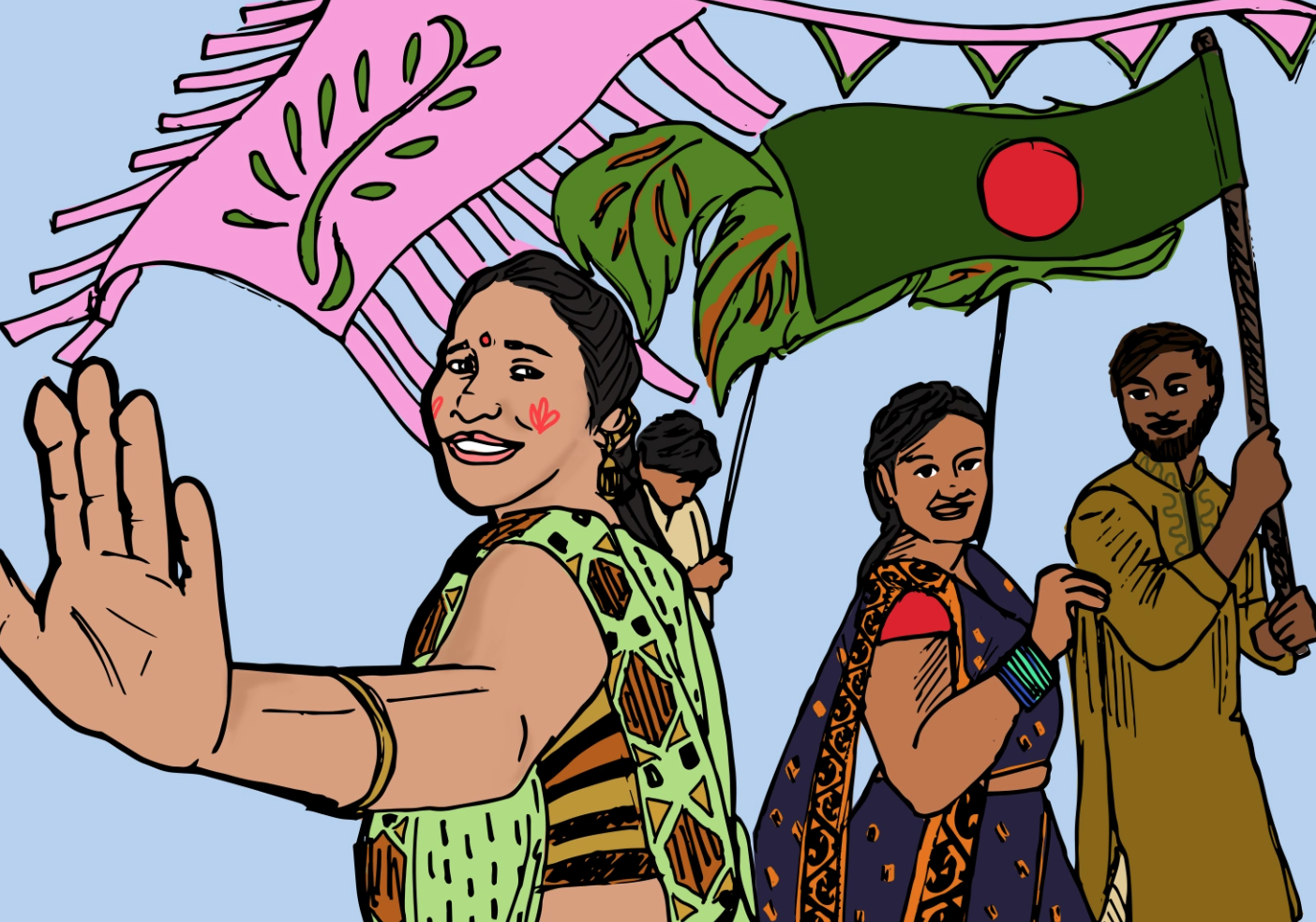
A Conversation
There is another factor which comforts me. A large part of British society has always had profound admiration and respect for the Jamdani sari, indeed for any sari. If I am invited to an English gathering, I often choose to wear a Jamdani. It opens conversations because English people get to know that, a long time ago, we were supplying and dressing English women with muslin which came from now Bangladesh.
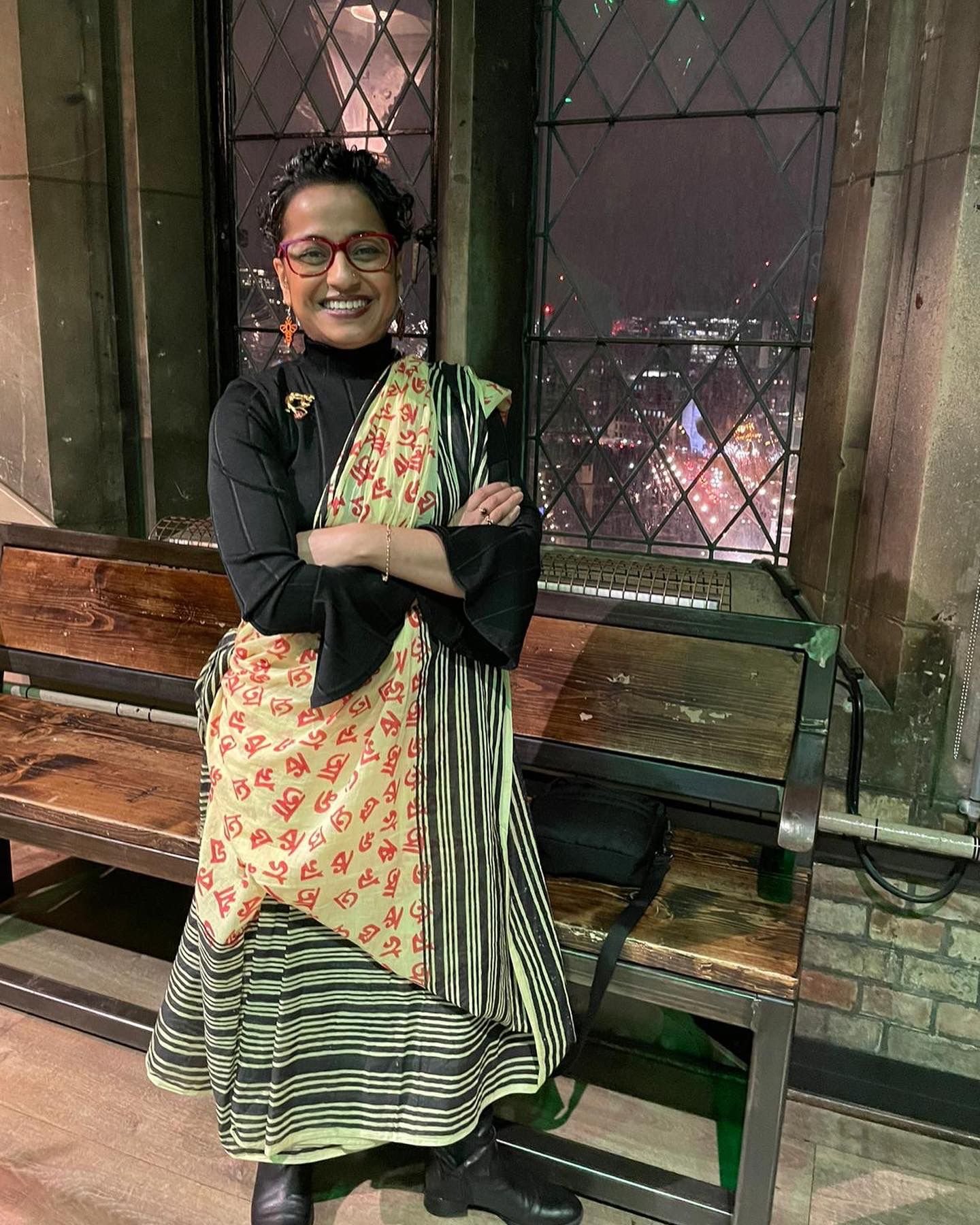
Bijoy Dibosh - Remembering the women of war the Birongona
I was born in a tiny earth and bamboo home in Sylhet and I was made in the city of London. I thank my luck and ancestors for carving a path that allows me the privilege of freedom of choice

I wasn’t born in the UK, but I certainly feel more at home in the UK than anywhere else.
Growing up as a British Bengali Muslim girl in an inner-city area of London was tough. Most girls like me struggled with identity due to conflicting eastern and western cultural expectations. It was difficult to fit in during the primary years of my life as I couldn’t speak English. My family lived huddled in a room in a flat above a shop and I spent the first few months of my life in the UK staring out of a window, watching the world go by.

Easy like Sunday morning
‘She humoured us. We would call her every time, as it was so rare to see a person wearing a sari on the television. Sometimes white people would stare at her in the town centre and I felt embarrassed that she dressed differently and stood out, but she didn’t care and eventually neither did I.’

Supporting Family with Mental Health Illness
Hear from our good friend and British born Bangladeshi, Dr Jolel Miah talk about his experience supporting family members from a young age with their mental health journies, the stigma and discrimination in mental health and what society can to do to support people with mental health issues.
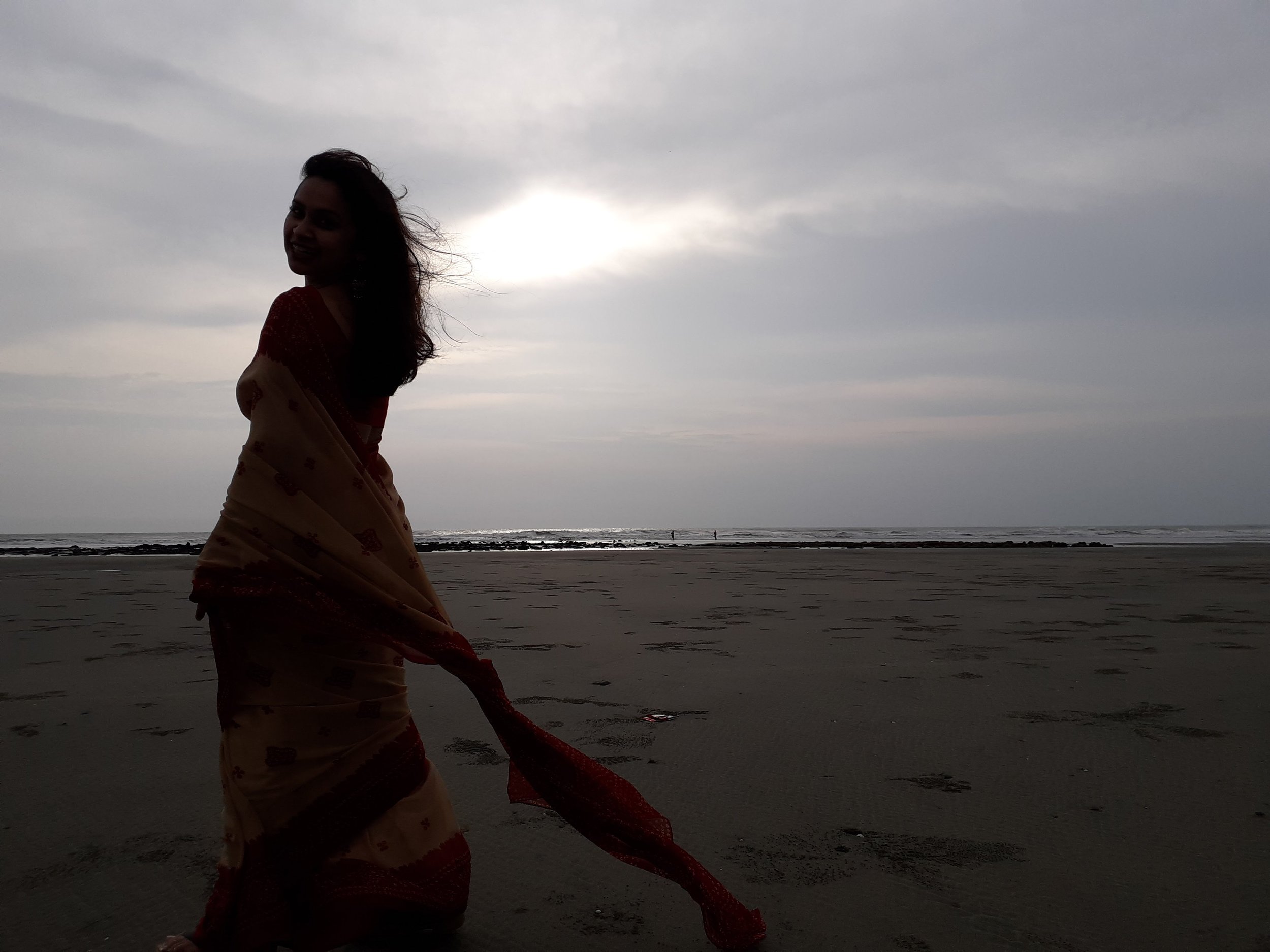
The Genesis
A poem written by Eeshita Azad a self proclaimed arts junky, culture-curator, poetry maker, trekkie and proud🖖 Eeshita also leads British Bilingual Poetry Collective

Living in a World of Difference - I love looking at life through my kaleidoscope of neurodiversity
I will never stop being neurodivergent, it is for life. But I actually love looking at the world through my eyes
It is a rainbow coloured kaleidoscope. It keeps me active, gives me purpose and I feel I am changing the world every time I have a new idea

Born in the UK but made by Bangladesh
I was gently pushed forward. As I handed the bag of rice to the Prime Minister and said please help Bangladesh and our people. He smiled down at me and someone took the bag. I had done my job and was helped to turn around and walked out of the crowd.

How football influenced my British Identity
At this point in my early teens, I had a better understanding of the world. I knew not every young person was a friend, and I understood not every adult was a guardian. If you wanted to be taken seriously, you either had to throw your weight around, or you had to perform on the pitch.

A woman who is changing her world through law, art and her children
She was the first in her family to go to university and allowed by her dad to live away from home. This was a big ask of a man from his generation and background, but he believed wholeheartedly in her. She felt she was leading the way, not only for her younger siblings but for the Bangladeshi community that surrounded her. Like her father, she was willing to go against the expectations that the world had on them. Together they were brave and pushed boundaries.

Unashamedly Bangladeshi
Being the last commonwealth cohort to arrive certainly put us at the bottom of the pecking order and a smaller build from the other South Asian communities meant that we were easy targets. Growing up, we had to learn to defend ourselves or run. My understanding was: if you run you would have to do that all your life. I chose to stand and fight when I was able to.
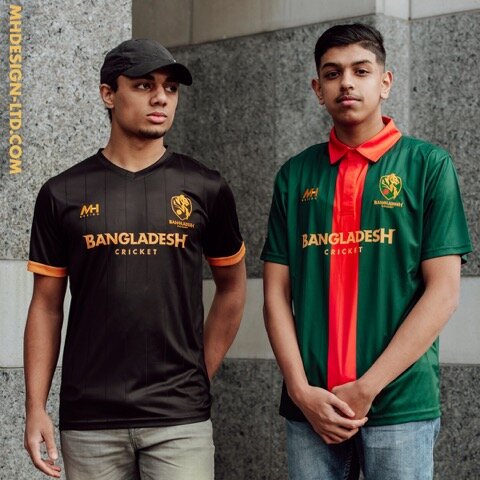
Fusing fashion, sport and culture with the Bangladesh identity at heart
I know a lot of the young generation of British Bangladeshi may feel disconnected to have the same sense of pride or take inspiration from their cultural heritage. Whether we live in the UK or the States, or our families are from Sylhet or Dhaka, I believe we all have this symbiotic cultural connection and understanding. With all this in mind, I wanted to create a brand that would resonate with the Bangladeshi diaspora. It was a personal ambition to create something that was a celebration of Bangladesh but also evoke an emotional and sentimental feeling of pride for our heritage.

Importance of Identity in Diaspora
Hear Co-Founder and CEO of Diversity and Ability, Atif Choudhury, chat to our Co-Founder Poppy Jaman OBE about the history of Bangladesh, family memories, what it's like being part of a diaspora community and looking at the strength of inclusion through intersectional lenses.
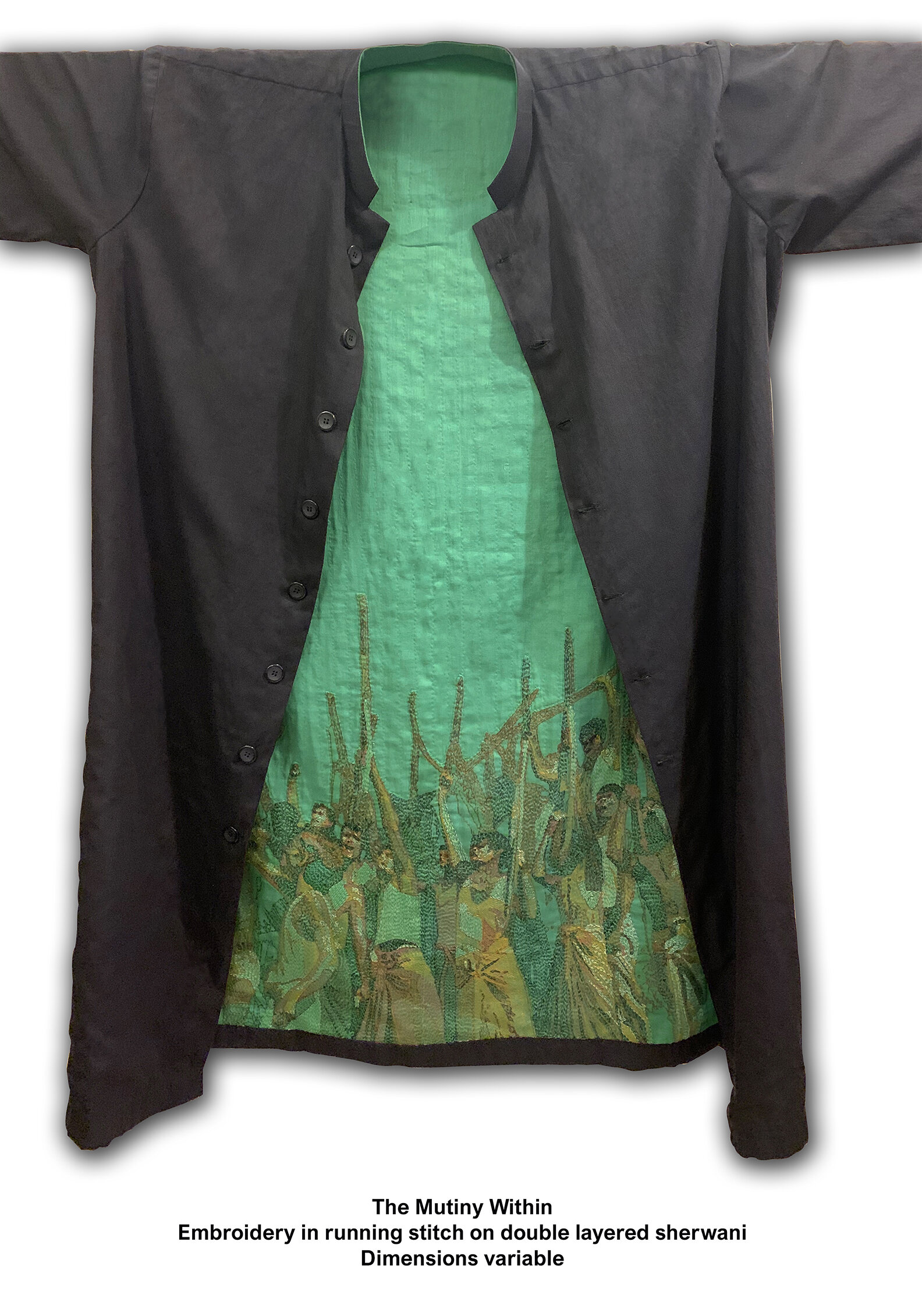
Leaving Home To Go Home
Photo: The Mutiny Within
Violent imagery that has been constructed out of thousands of innocuous little stiches, positioned on the inner lining of a sherwani, This artwork talks of buried secrets and compromises made. A garment worn by bridegrooms and premiers, holds context on the inside that need never be revealed.

The Matriarch
Photo: Syed Rifat Hossain
Mamoni was shorn of all adornment, dressed in a creamy white saree with no border, the parting in her hair bereft of the meandering stream of vermillion, looking bloodless and stark. What you noticed from a distance, was the blank canvas of her forehead, no longer marked by the pomegranate red kumkum powder, painstakingly shaped into a perfect circle every morning by Mamoni’s deft fingers
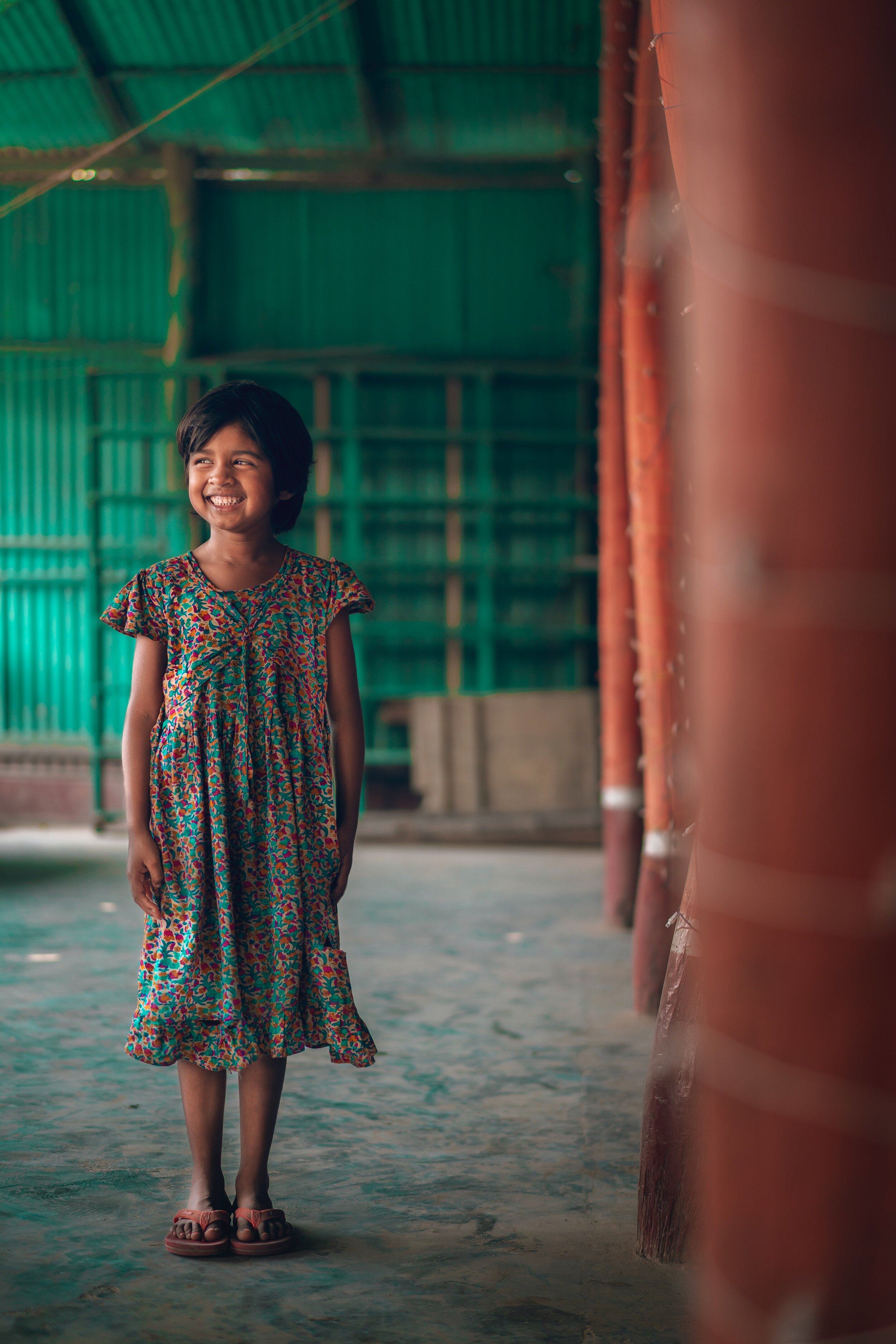
The Best of Times
Photo: Ahmed Hasan
I feel my growing years were the very best of times, an age of wisdom, in a season of light, with the spring of hope and laughter. So much fun and laughter.
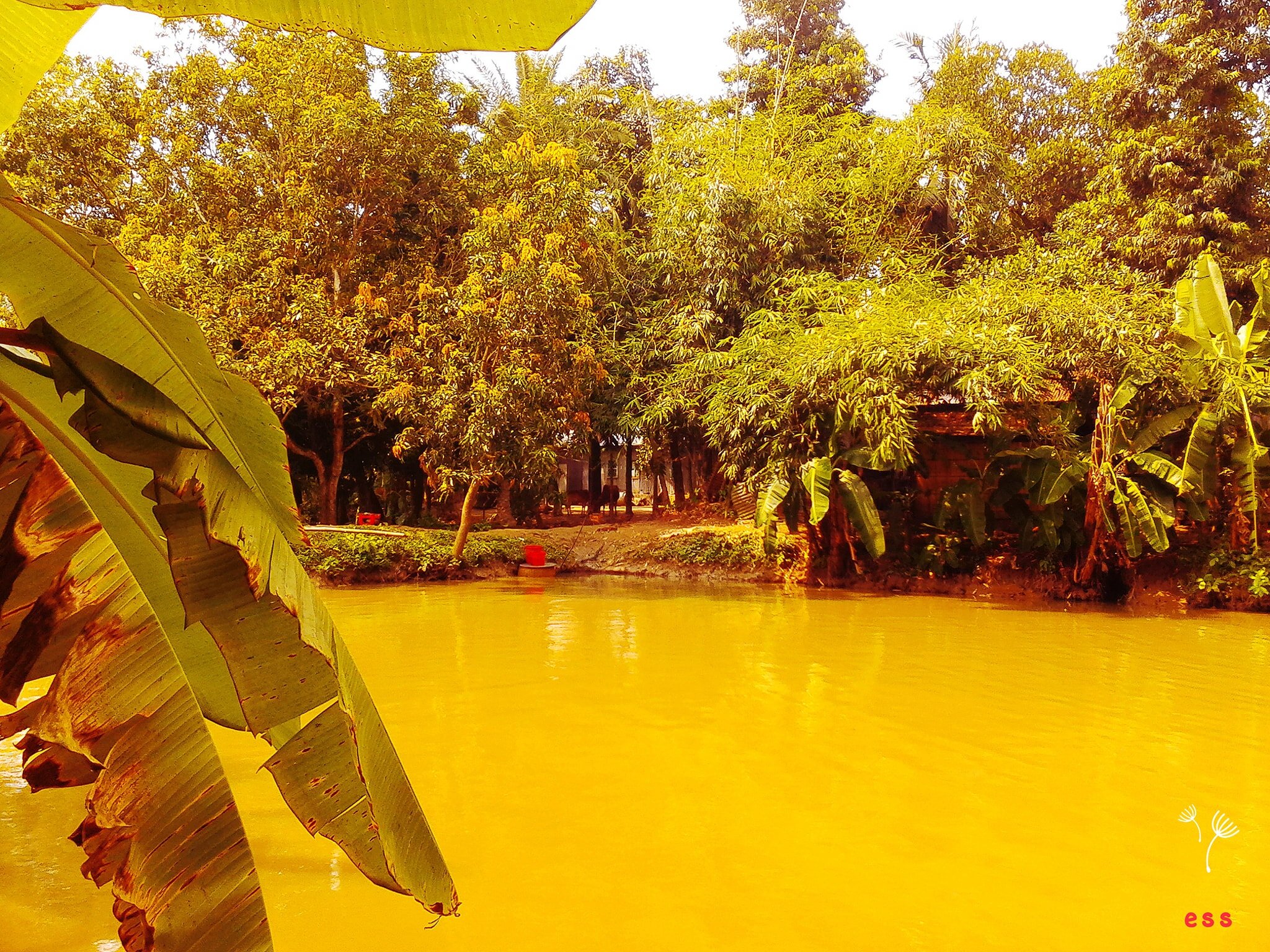
A Tale of Two Rivers
I’ve always felt it easy to belong to London...who wouldn’t? When I first came to work in London in 1999 it was still a city that embraced every type of being with open arms. I could walk down the streets in gothic attire or a saree, and neither would get a second glance. I valued this all the more because having moved to Finland in 1986, I always used to notice how people stared at us...we would often be the only dark-skinned people in the city.

School Lunches
One minute you’ll be enjoying yourself, thinking you are comfortable here, and the next, it’s that all too familiar stare and those words echoing, “go home, GO Home!”

The ‘71 Connection
One thing that resonates, is that we all hold our heads high as Tagor saab’s athem resonates from
our inner beings... taking a fist full of our earth in hand, we echo in unison “Amar Shunar Bangla, Ami
Tumay Balobashi...” (My Golden Bengal, How I Love Thee...)!

Rabindranath Tagore - The World Poet
For Prabhashi Bangalis like me, that the influence of Rabindranath Tagore will be strong. But what about the next generation?
